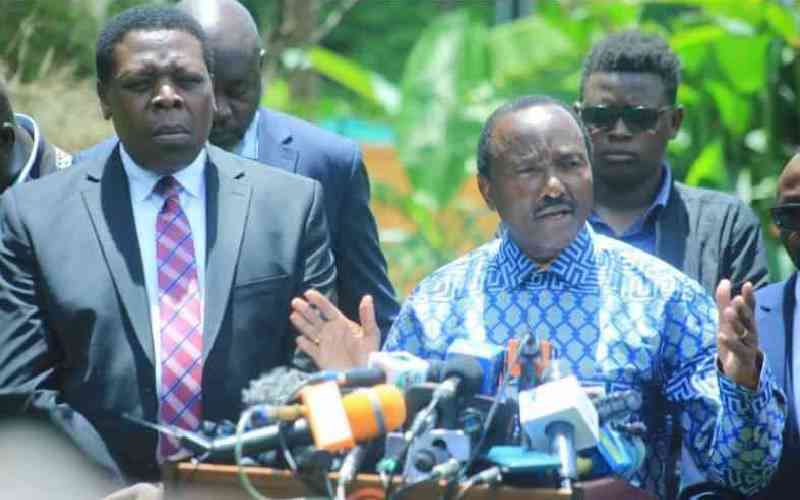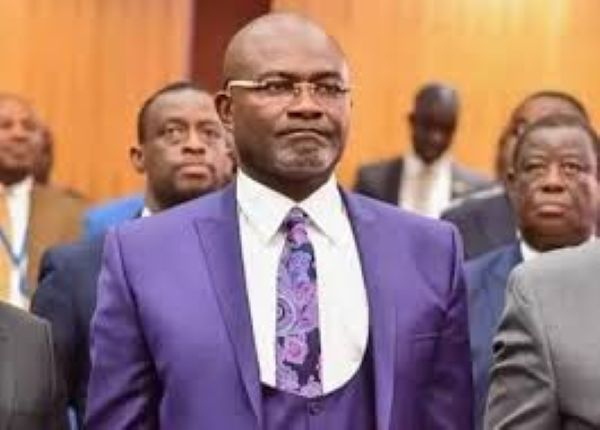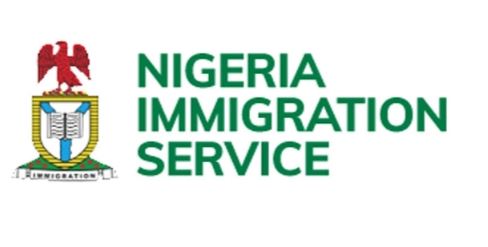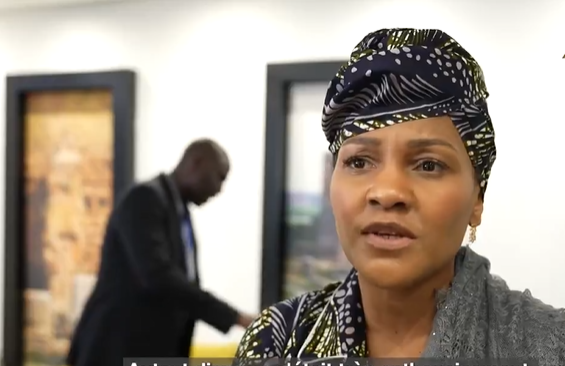Nigeria halts implementation of controversial regulation on businesses
The federal government has announced a temporary pause in the implementation of a contentious regulatory framework introduced by the Financial Reporting Council of Nigeria (FRCN).
The decision is part of the move aimed at easing tensions with the organised private sector and restoring investor confidence.
The decision, announced by Minister of Industry, Trade and Investment, Jumoke Oduwole, on Wednesday, follows weeks of growing discontent over recent amendments to the FRCN’s levy regime and its expanded scope of entities classified as Public Interest Entities (PIEs).
Mrs Oduwole clarified that the federal government is not suspending the implementation of the Financial Reporting Council’s revised levy regime, as such an action would contravene legislation passed by the National Assembly. Instead, the government is initiating an administrative pause — a temporary halt intended to allow for a review based on stakeholder feedback.
“This is not a suspension,” Mrs Oduwole told stakeholders at the meeting. “This is a pause. A suspension will be a contravention of legislation duly passed by the National Assembly. A pause is an administrative process to review the framework in line with today’s discussions.
“We are a listening administration. The President has been fully briefed and has approved that we meet and come up with a technical working group to conduct an empirical review and revert within a firm timeline of 60 days. Not three months. Not indefinite. A maximum of 60 days.”
The emergency forum was convened in response to a backlash over the revised implementation of Section 33(1)(c) of the FRCN Act, which mandates that quoted companies pay 0.002 per cent of their market capitalisation or N25 million—whichever is lower—as annual dues. While the provision itself is not new, recent amendments to the Act have widened its reach to include large private companies, concessionaires, and privatised entities, many of which were previously exempt.
On Tuesday, the ministry confirmed that the meeting had been called “to create room for constructive dialogue around regulatory policies,” with Mrs Oduwole reiterating that the government was committed to ensuring “businesses of all sizes are treated fairly under the current framework.”
“This is critical to enhancing business competitiveness and aligning with Nigeria’s broader economic transformation agenda,” she added.
The pushback has been led by the Manufacturers Association of Nigeria (MAN), which argued that the levy framework would deepen the cost burden on businesses, especially those already grappling with high inflation, currency devaluation, and weak consumer demand. MAN’s Director General, Segun Ajayi-Kadir, criticised the expanded PIE definition, saying it would unfairly penalise unlisted firms.
“For publicly quoted companies, the maximum payment earlier was N1 million per annum. Now, that amount is hiked to N25 million! Quite incredibly, for non-listed companies, who were previously excluded, there is no cap and it is linked to the turnover, irrespective if the company is profitable or not,” he said.
As part of its response, the Ministry of Industry, Trade and Investment committed to establishing a technical working group comprising representatives from the private sector, the FRC, and the Presidential Tax Reform Committee to re-examine the framework and recommend a path forward.
The working group will adopt a risk-based, evidence-driven approach and is expected to conclude its work within 60 days.
She also said that she had formally briefed President Bola Tinubu ahead of the consultation and also engaged the Chair of the House Committee on Commerce.
She stressed that the process would remain transparent and aligned with global regulatory best practices.
The minister acknowledged that while the original law could not be ignored, the government recognises that many businesses are struggling with rising costs and regulatory burdens. She said the administration is open to revisiting aspects of the levy framework to ensure fairness and competitiveness.
Mrs Oduwole confirmed that outcomes from the review would be escalated to the president and, where necessary, to the National Assembly for legislative consideration.
At Wednesday’s consultation, representatives of key industry bodies, including the Nigerian Employers’ Consultative Association (NECA), the Manufacturers Association of Nigeria (MAN), the Nigerian Association of Chambers of Commerce, Industry, Mines, and Agriculture (NACCIMA), the Oil Producers Trade Section (OPTS), and the Association of Licensed Telecommunications Operators of Nigeria (ALTON), voiced strong concerns about the new levies.
They highlighted that the revised dues would exacerbate the financial strain on businesses already grappling with rising operational costs, currency depreciation, and subdued consumer demand.
The stakeholders stressed that, in the current economic climate, the additional burden could stifle investment and erode competitiveness in key sectors.
In his remark, the Executive Secretary of the FRCN, Rabiu Olowo, defended the introduction of regulatory fees as a necessary tool to ensure effective oversight, insisting that the absence of such mechanisms is untenable.
“We cannot be ok with no tools to regulate,” he says, pointing to the importance of fee structures in enabling regulators to function properly.
He challenged the resistance from private firms, especially those operating internationally, noting the double standard in their objections. “It is obtainable with some of the businesses you have in the US and UK. They pay these fees. It’s better they pay these fees. Why is it a sin for you to do it here?”
Positioning himself as an ally of the organised private sector, he argued that his stance is not driven by short-term considerations but by a commitment to the durability of the business environment.
“For me, we are here to serve the interest of the organised private sector not in the short-term frame but in their long-term business protection,” he said.
Drawing on his experience, he added, “I have worked in the private sector more than I have worked in public service. I have been decorated many times by all of you.”
He insisted that the measures being implemented reflect a broader concern for sustainable regulation and not an attempt to burden businesses unnecessarily.
“I am acting in your best interest, and this is what best looks like.It is not about paying a small fee and your regulator cannot work.”
He expressed optimism that his remarks have fostered greater clarity around the regulator’s mandate, while reaffirming a commitment to ongoing dialogue and constructive engagement with the private sector.









